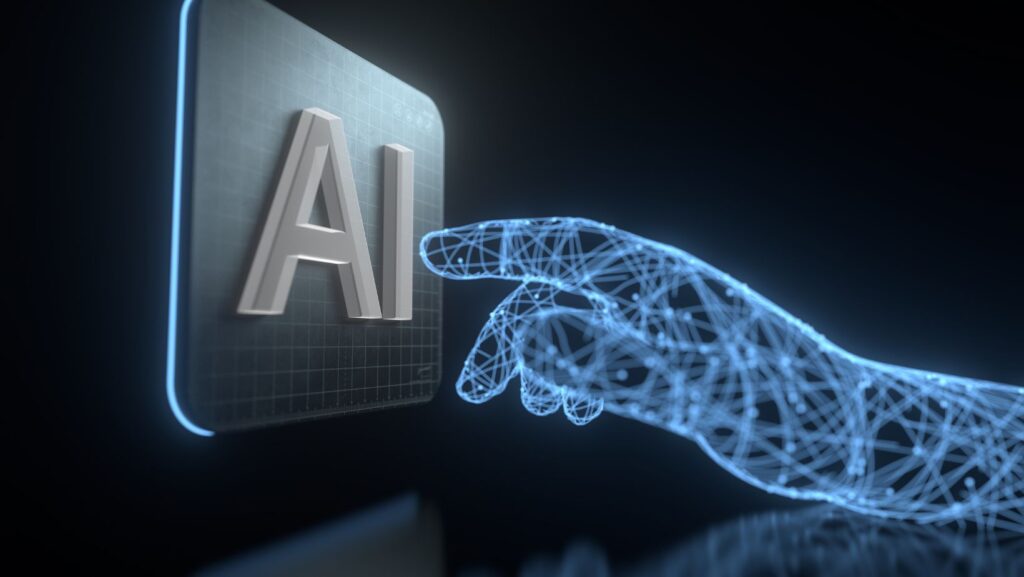
 Artificial Intelligence (AI) is now a common feature in our day to day activities and is slowly but surely changing the way we carry out our activities and our engagements with technology.
Artificial Intelligence (AI) is now a common feature in our day to day activities and is slowly but surely changing the way we carry out our activities and our engagements with technology.
Starting from the suggestions for products and services to the home automation systems, AI makes our lives easier and more fulfilling in many aspects.
Knowing how to use AI to its potential can help you make your daily interactions with technology more efficient and beneficial. So, let’s get started!
Automating Routine Tasks
AI is particularly good at dealing with routine work, so you won’t have to spend time on it. The first way of applying AI is through automation tools. For example, creating smart assistants including Siri, Alexa, or Google Assistant can help in performing tasks like setting reminders, sending messages, and organizing your timetable. They adapt to your behaviors and thus offer more help as they are personalized.
Also, applications with artificial intelligence integrated into them can help optimize your day-to-day activities. Services such as IFTTT (If This Then That) are used to link various services and perform actions in response to certain occurrences. For instance, it can be set to save the attachments of the received emails to the cloud storage or share the updates on different social media accounts at once, thus increasing efficiency.
Enhancing Communication
AI enhances communication through features such as NLP that enhances the way people communicate. For instance, chatbots can be used to attend to customer service requests and offer fast solutions without having the customers wait for extended periods. The use of chatbots in your business or website can guarantee availability at all times, which will improve the satisfaction of customers and productivity.
In the case of personal use, the AI-powered translation applications help in overcoming language barriers when interacting with people from different parts of the world. Applications such as Google Translate and DeepL provide translation in real time, which helps in comprehending and communicating in other languages. Additionally, AI tools that convert text to speech can assist in various scenarios, such as aiding those with visual impairments or creating engaging audio content.
Personalizing Experiences
The ability to personalize is one of the most significant benefits of applying AI. Modern applications such as Netflix and Spotify employ AI to study your habits and recommend content that you would like. In this way, these platforms are able to give a more enjoyable and relevant experience based from the viewing and listening habits of the users.
Another area that uses AI personalization is e-commerce websites. Here, AI uses the data from browsing and purchase history to suggest products that you are likely to purchase. This not only makes the shopping experience more enjoyable but also makes you find new products that are of interest to you. Using these targeted suggestions can prove to be time-saving and result in more satisfying purchases.
Improving Health and Fitness
Automated applications in health and fitness are personalized and self-monitoring. Smartwatches monitor your steps, heart rate, and sleep, which gives you an idea of your health status. MyFitnessPal and Fitbit are some of the applications that employ AI to analyze this data and suggest the best exercise regimen and diet plan.
 Also, AI is advancing in the provision of mental health assistance. AI chatbots and virtual therapists give mental health services to people and give CBT strategies and support. These tools can be very useful for people who might not be able to attend traditional therapy sessions, thus offering an extra option in maintaining mental health.
Also, AI is advancing in the provision of mental health assistance. AI chatbots and virtual therapists give mental health services to people and give CBT strategies and support. These tools can be very useful for people who might not be able to attend traditional therapy sessions, thus offering an extra option in maintaining mental health.
Enhancing Learning and Education
Education is being transformed by AI through offering customized learning. Khan Academy and Coursera are some of the educational platforms that have incorporated the use of AI in delivering lessons in a way that suits the learner and at the learner’s pace. These platforms evaluate your learning and the level of difficulty of the content provided is adjusted to make the learning process more efficient.
AI also helps teachers in doing away with the burden of doing administrative work and in analyzing the performance of students. Such tools as GradeScope not only can grade the assignments but also give a detailed feedback which will free up the time of the educators and allow them to concentrate on more important tasks. Also, the AI tutoring systems can provide the students with additional assistance after the class, thus making education more available and individualized.
Managing Finances
AI is revolutionizing the financial management by providing intelligent solutions for spending, saving and investing. Mint and YNAB (You Need A Budget) are some of the applications that incorporate AI in spending analysis, categorization of expenses, and budgeting recommendations. These tools assist you in the management of your finances so that you do not deviate from your financial plan.
For investment, there are AI-driven robo-advisors such as Betterment and Wealthfront for automated portfolio services. These services employ programs to assess market conditions and your tolerance to risks thus investing in a diversified portfolio on your behalf. This enables even the inexperienced investors to engage in stock trading without much difficulty.
Boosting Productivity
AI tools improve efficiency by changing how you do things and how you allocate your time. Applications such as Trello and Asana in the management of projects incorporate artificial intelligence to estimate the time required to complete a project, determine the resources required and even identify areas that may slow down a project. These features assist in keeping the teams on track and on time in terms of the set deadlines.
Also, AI writing tools such as Grammarly and Hemingway enhance the quality of your writing through suggestions on grammar and style as you write. They assist you to relay your ideas better and also save time that would have been used in correcting the mistakes. The incorporation of such AI tools in your work can greatly enhance your efficiency as well as the quality of your work.
Enhancing Creativity
AI is also a friend to creative industries. Some of the applications of AI include Adobe Sensei and Runway ML that help with graphic designing, video editing, and music composing. These tools take your inputs and suggest to you, which helps in saving time and generating more ideas.

Further, it can assist writers in coming up with content ideas, writing the text, and even coming up with a story. OpenAI’s GPT-3 is one such tool that can generate coherent and contextually relevant text based on the prompts that you give, which is helpful when you are stuck in a writer’s block and need to work on your creative writing projects. AI integration in creative processes can result in creative solutions and an increase in the number of creative opportunities.
Improving Home Life
Smart home appliances are those home appliances that are controlled by artificial intelligence to ease the management of a home and improve comfort. Smart thermostats such as Nest are able to learn your preferred temperatures and then regulate the temperature on their own to help save energy. Likewise, smart lighting systems can also be set to change throughout the day or according to one’s schedule for enhanced comfort and efficiency.
Security is another area where AI performs very well. Smart security systems incorporate artificial intelligence to analyze patterns and inform you of any suspicious movement. Facial recognition and motion detection are some of the features that make the home secure and make one feel safe. Thus, incorporating AI into your home enhances not only the comfort and effectiveness of living spaces but also the safety of the residents.












